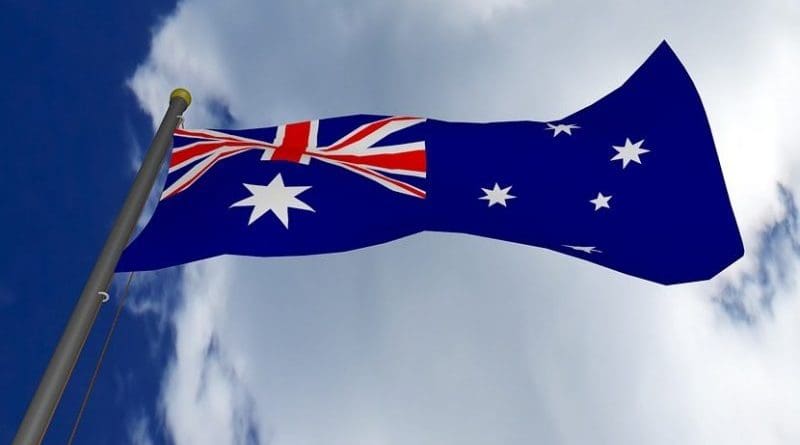Gillard Goes To Washington: The US-Australian Security Alliance
An American journalist could not help mentioning it: that Australians have fought alongside the United States in every major conflict since the First World War. This is, after all, the 60th anniversary of the ANZUS treaty, binding Washington and Canberra in a military alliance that has lasted well past its Cold War origins. The Wall Street Journal corrected itself when it described the visit of Australia’s Prime Minister Julia Gillard to the US as a ‘state visit’ (Queen Elizabeth II is, it conceded, Australia’s head of state). This blemish is forgivable – the frequency of such visits is few and far between, with Gillard being the fourth Australian Prime Minister since Robert Menzies, Bob Hawke and John Howard, to address the US Congress.
Australia’s almost fanatical commitment to its relationship with Washington might be deemed pathological. Dissent against it is quashed with fury on all sides of politics. A Community Consultation Panel formed to examine submissions on Australia’s defence policy in 2009 found that, ‘Most Australians continue to support the alliance with the United States.’
This is not to say that the relationship is mutually obsessive. It is always hard to be obsessive about someone you can regard as a lesser. Rome had its satraps and had plenty to choose from. The British had their loyal Ghurkhas. The United States can count on the Australian variant, unflinching loyalty in the face of opposition, however globally based that might be. But the desire to keep Washington involved knee-deep in security commitments in the Asia-Pacific region is a persistent one. ‘Of particularly concern,’ claims the 2009 Defence White Paper, ‘would be any diminution in the willingness or capacity of the United States to act a stabilising force’.
Lip-service is always paid to Australia’s own ‘defence needs’ (the White Paper here being no exception), though the role of the United States as a mistress of the blue horizon may change in time. It is almost with fear that one comes across the words, ‘We will, however, see changed strategic power relativities and an increasingly “multipolar” global order, driven by changing patterns of underlying economic power and political influence.’
There are no surprises, then, on the issue of greater cooperation over involvement in Afghanistan and the overall issue of defence. China, with its emerging muscle, is proving a concern. With its customary fear of some yellow empire breathing down its vulnerable neck, Australia’s officials look to the US to shield the brilliant gaze from Beijing. ‘Obviously,’ claimed Gillard, ‘China’s rise does also cause discussion of its rise as a military power (WJS, Mar 4).
This attitude sits curiously with Australia’s insatiable appetite for the Chinese market, which has done more than its fair share in insulating it from economic shocks. Given Australia’s continuing inability, let alone interest, in establishing its own manufacturing base, the Chinese are relied upon to take what’s dug out of the earth. Give us your cash, argues Australia’s business community, but nothing else. Everything else, it seems, will be the yellow man’s burden.
Politics is very much the art of appearance. In the United States, the appearance is what triumphs – at least initially. Australian observers drool at reports of long ovations, that House Speaker John Boehner was seen wiping ‘away tears as [members of Congress] beamed with pride’ (The Australian, Mar 10).
Gillard’s fawning words might well have made some impact on those gathered – there were six standing ovations and 10 seated rounds of applause. ‘I firmly believe you are the same people who amazed me when I was a small girl by landing on the moon.’ (A Gillard moment? A speech writer’s inspiration?) Most importantly, she gave her audience the necessary nourishment, stroking the ego of American exceptionalism: ‘You were indispensable in the Cold War and you are indispensable in the new world too.’
Marc Beharry, an IT expert based in New York and prone to hyperbole, was sought by AAP to give his analysis on the Gillard ‘performance’ before Congress. ‘Prime Minister Gillard’s job approval rating on CongressRatings.com is definitely high compared to most other politicians we track.’
It is remarkable that the art of governance has been reduced to a digit, to a calculation, let alone a mere visit. Of course, noted Beharry, there was a far smaller sample size. ‘One definite factor is the small amount of votes we received for her so far’, though, not to be discouraged, ‘that small sampling [of] her numbers are way higher than the norm.’ It certainly helped that she was ‘the first woman to hold that office’. In the end, though, Gillard did what Australian leaders do so well – push American buttons with almost childish glee.

